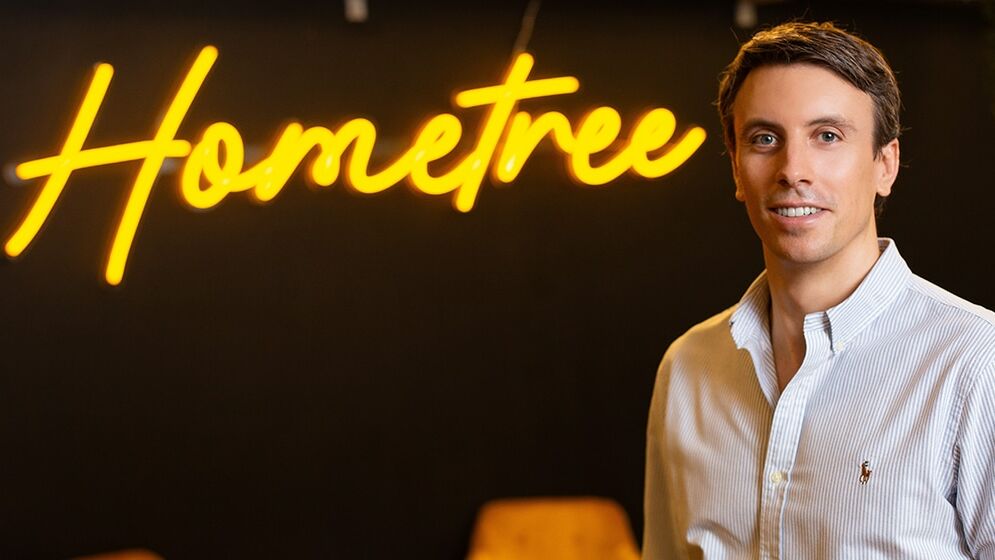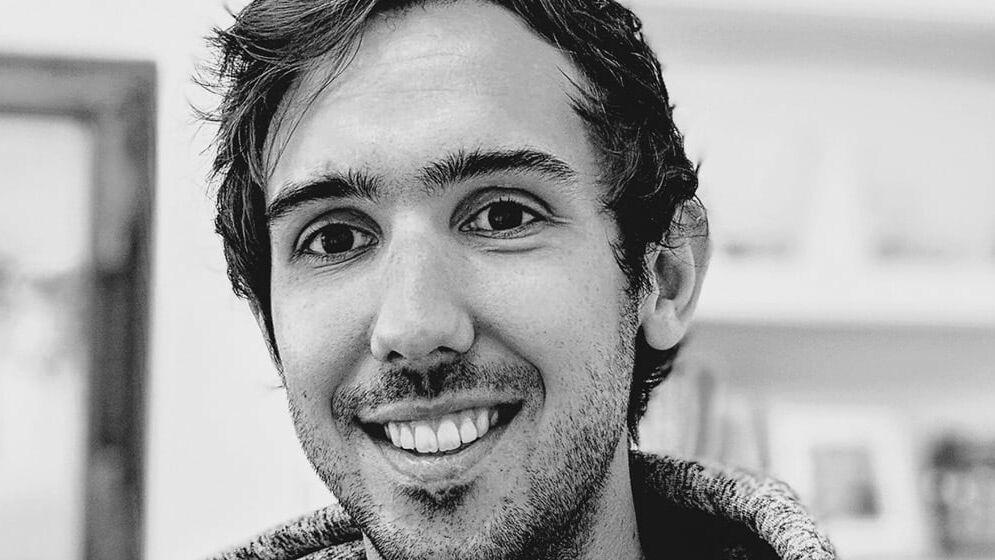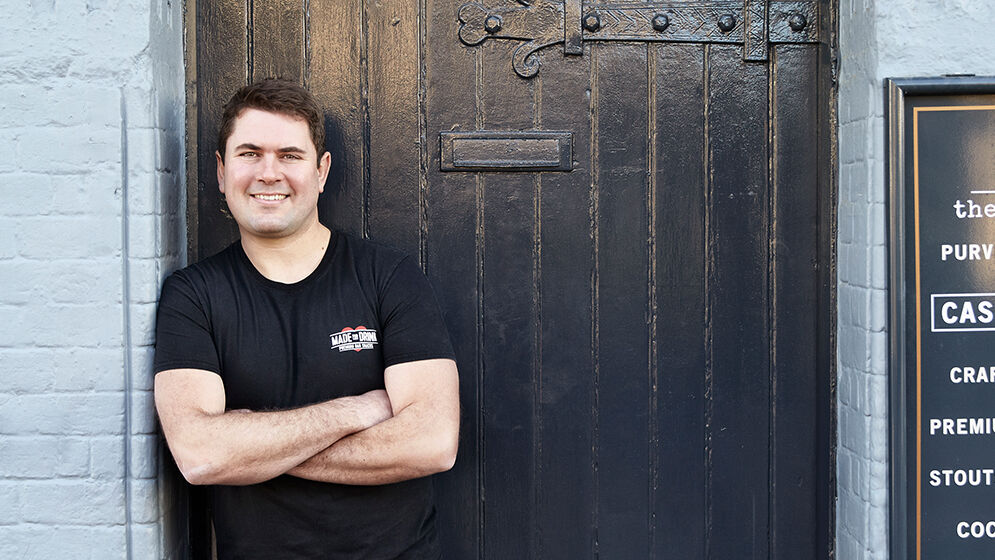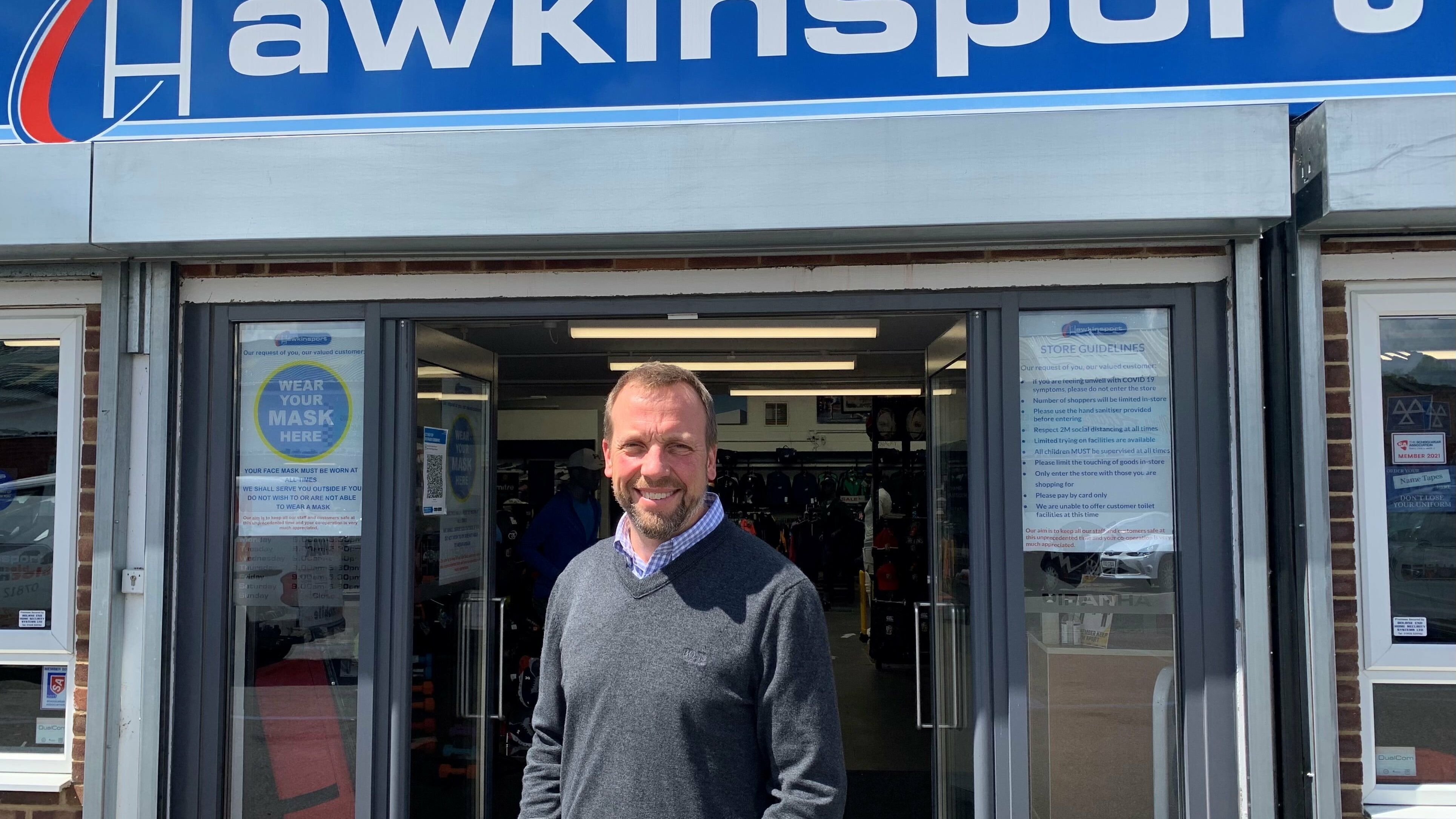
Alex Fenton – interview with the founder of GapCap
Ask Alex Fenton, founder of GapCap, for a company description and you get a pretty standard answer…
We specialise in ‘Selective invoice finance’. We’re fully tech enabled so can make quick decisions, with no minimum fees, no service fees. Clients can almost drawdown at their leisure.
Pretty quick into the interview and I discover there’s nothing ‘standard’ about Alex Fenton whatsoever. So what is it about this 29 year old upstart in his 4th year of the business he founded after a £5m fund raising? Well for starters, he oozes confidence without coming across as arrogant in any way. Seemingly unfazed by pretty much anything, yet with the empathy to check himself and those around him. Dressed in a spoof T-Shirt with the words ‘Straight outta Whistable’ and jeans, he could be any one of the 18 casually dressed staff, all going about their work in their smart offices in London’s EC1. That is, until he starts talking.
My background was in Private Equity – fresh out of Uni, pretty quickly I was raising funds for businesses. We were sector agnostic so there was a real cross section of businesses. They were all good businesses with the same issue – they all needed funding for cash flow and were getting that by giving up significant amounts of equity. I was enjoying the pay cheques, but I somehow felt uneasy with the concept and felt there MUST be a better way. I had been lucky enough to see how not to do it, we just had to find the sweet spot.
Lack of experience meant I wasn’t biased to a particular structure, it was lucky that has worked in our favour.
1. When was the moment you realised you had a head for business?
My father is a classic, serial entrepreneur, not quite Mr. Kellogg but has had a huge amount of success and failure. My childhood memories are all feast v famine. He took a huge amount of risk and it felt like there was no financial stability. Business was always the backdrop to family life.
I think I inherited the entrepreneurial spirit, but have learned from his mistakes. But I also learned that however many mistakes he made, he always emerged kicking and screaming, so I guess there was a pre-determination for me to just give it a crack given the downside was always outweighed by the upside.
2. How has that left your attitude to money?
I’m pretty low maintenance and not really motivated by money, or fashion, or cars. This is about creating something to be really proud of.
3. You raised £5m to start your business at the age of 25. No mean feat. What would you say were the outstanding elements of your pitch that led to the successful fundraising?
For starters, we had a fundamentally good product. Convincing people to part with their money is not that difficult when you have something worth investing in. Having sat the other side of the table on many occasions, I also knew which buttons to press and what not to say.
I was lucky that through all my father’s ups and downs he maintained my education and my peers’ parents were all in senior positions – I guess that got me primed for communicating with senior people and less prone to feeling intimidated.
4. What are the challenges of being a young leader of a business?
You get judged a lot! Fortunately I’m going a bit grey so less so now. It also seems that the UK is becoming more welcoming these days to young entrepreneurs.
I actually find it harder in a social context. Not many of my peers are entrepreneurs, they’re climbing the corporate ladder – so sharing the trials and tribulations of start-up life can be limited.
5. What’s the biggest challenge of running a high growth business – how have you overcome this?
People! Finding and keeping good people. If you make one error hiring in a key function it can set you back months.
6. How do you see the funding landscape changing over the next 5 years?
Consolidation will play a big part. Banks will look to acquire quirky businesses like us. As Monzo or Revolut go further down a full disruption of banking route, who knows where it could end up? But people are realising there is a better way to do it. There is scope for new players.
7. Would you see yourself owning a bank?
Erm… No! The current ambition at GapCap is to make myself obsolete… so having a business with scalable systems and top people! In a personal context. I love dealing with SMEs – the great growth stories, such as The Primal Pantry whom we first funded with just £8k and they’re a multi-million pound business, stocked in all the major retailers! I definitely want to work with small businesses. I love playing a part in that.
8. If you were starting again, what would you do differently?
Absolutely loads! I would do so much differently. It turns out I am a pretty poor Head of Underwriting, so, for starters I would hire my risk manager 12 months earlier.
Secondly I’d keep a sensible distance from my staff, not so close to them – it blurs the lines. Put in more senior people, build more tech. There’s so much I could do.
9. Have you had any major setbacks?
Yes, plenty, particularly at the very outset, I was completely committed with my balls on the line and there were plenty of true moments of realisation. We were always fighting to plug the gaps, but we got through it.
10. When starting out, how did you decide who to get advice from?
We met 211 people in 96 days when setting up! People whose businesses I’d funded, met previously, come across in general or just cold called because we heard good things! That first quarter we spent more money on petrol than salaries. There was a lot of time in the car so we’d then literally read through our meeting notes and decide what made sense and what didn’t. In between we’d be listening to Audio books on how to build a new business. For starters this really honed my judgment skills on how to spot a bullshitter as we had to clear through a lot of muck.
11. You’ve spotted a gap in the market for flexible invoice finance, how do you maintain a differentiator against bigger competitors coming to market with a carbon copy?
Loads of businesses build the tech first and then go to market. We found our customers first and now we’re building the tech and it’s really functional. Doing it this way allowed us to consult our customers on how they want the tech to work.
We’re building an accounting API to pull in the data from all the cloud accounting platforms directly into our own algorithms with ongoing credit checks so it’ll make risk profiling and decision making even faster.
12. And finally – what does success mean to you?
We’re a long way from success in this business. Very focussed on tomorrow for now. We’re still creating predictable revenue and scalable systems, so we’re not yet looking too far ahead.
For the whole senior management team, being able to go on holiday and turn off their phone would look a lot like short term success! Oh, and maybe some kind of exit!
GapCap’s selective invoice finance allows smart businesses to raise cash against their invoices in 24 hours without any of the drawbacks of a traditional invoice facility.
Guide to selling your business
Your simple guide to helping you maximise the value in your business.





